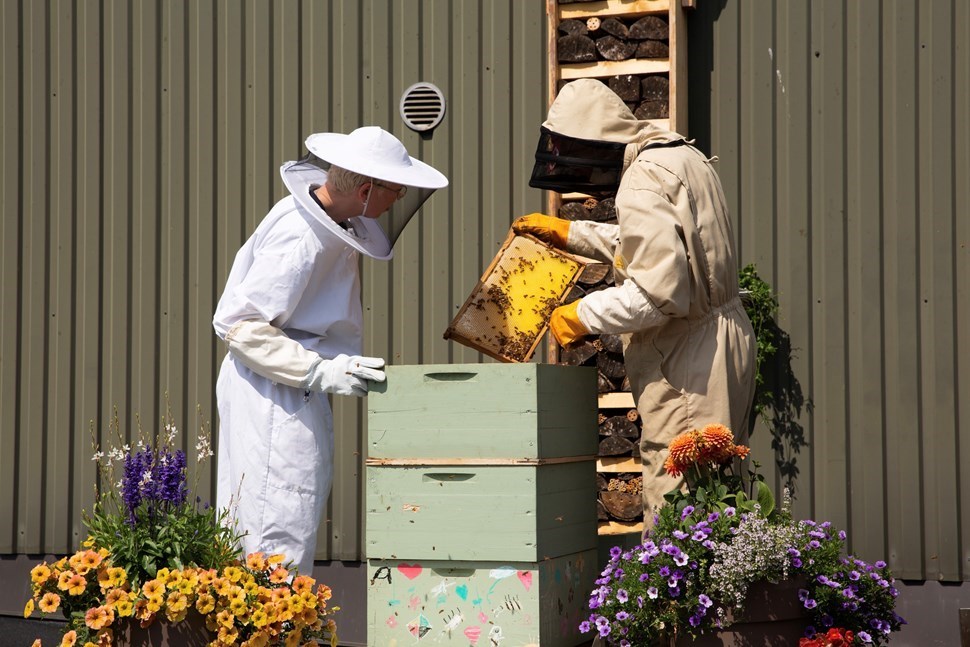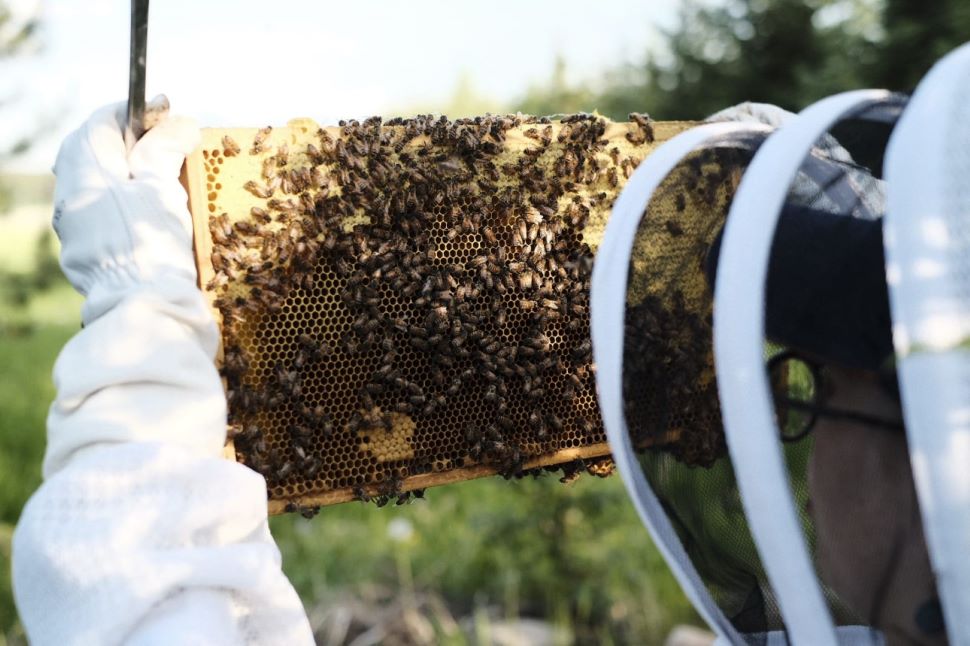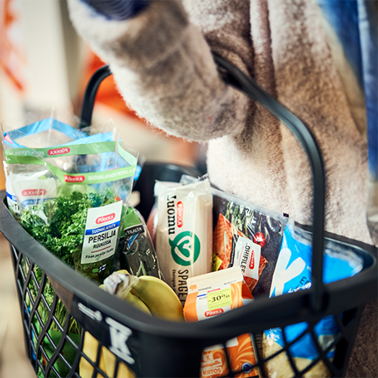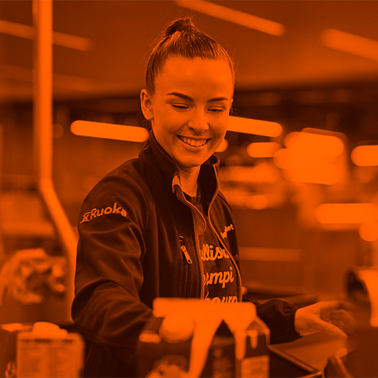Finland is lagging behind in its achievement of the EU’s targets to reduce the use of plastic carrier bags and for recycling plastic. New measures are needed and both businesses and customers must be involved. Customers are being encouraged to reduce...

K-stores’ own beehives produce truly local honey – retailers are enthusiastic about bees and beekeeping

Producing the store’s own honey has become increasingly popular among K-retailers, and truly local honey can already be found on the shelves of several K-stores all around Finland.
One of our enthusiastic beekeepers is Heli Romppanen, retailer at K-Supermarket Suosikki in Suolahti, who became interested in producing honey while studying the operations of various small-scale producers. Romppanen is a lawyer specialised in environmental law by education, and she had thought about how to make use of the knowledge and skills she had acquired in her earlier profession in her work as a retailer. Romppanen became so enthusiastic about beekeeping that she will now graduate as a professional beekeeper from the POKE Vocational College this summer.
“Our beehives are located at the edge of a field in Vihijärvi, about 15 minutes’ driving distance from the store. I am in involved in the whole honey making process from start to finish: in addition to beekeeping, I also process the honey and put it in pots myself. The honey has just been awarded the “Hyvää Suomesta” (Produced in Finland) label of origin, showing that a product has been made in Finland using Finnish ingredients. Working as a beekeeper has increased my understanding of small-scale producers’ work. Of course, our selection also includes honey from other local producers”, Romppanen says.
The store’s own “44260 Vihijärvi” honey is particularly popular among local customers. “The first batch of honey, which was put on sale at the end of last year, is already nearly sold out. In future, I want to ensure that the store’s own honey is available to customers all year round. That is why I’m currently raising queen bees for new hives”, Romppanen says.
 Photo: Markus Kurki
Photo: Markus Kurki
Cool weather in the early summer postponed flowering, but a fine honey yield is still expected in Akaa
There are more than 200,000 bees buzzing on the roof of K-Supermarket Akaa this summer. In the spring, the third beehive was lifted on the roof, to be cared for by Risto Niilimäki, an experienced beekeeper from Akaa. The bees living in the hives are docile Italian bees that do not disturb the store’s customers.
Satu Kettunen, retailer at K-Supermarket Akaa, actively participates in beekeeping and eagerly anticipates this summer’s honey yield. The cool weather early in the summer postponed the flowering of many plants, so Kettunen is hoping for a warm July. On sunny days, bees collect nectar from raspberry and rosebay willowherb plants growing nearby more eagerly than in cold and rainy weather. A new yield can be collected at the turn of July and August, and it will be available on the store’s shelves in early August.
“People in Akaa have taken a liking to honey products. They are proud of local products and often buy them as small presents. Tourists also buy honey products to take home. In addition to honey, our product selection also includes a honey cider flavoured with the rooftop honey, produced at the local Terissaari organic apple orchard”, Kettunen says.
Bees play an important role in maintaining biodiversity
The bees living in the stores’ hives carry out important pollination work in the nearby environment. Pollinating insects are vital to biodiversity, but their numbers are continuously decreasing. The effects of pollinator loss are extensive, as most of the food we consume is connected to pollinators – for instance, most cultivated plants require pollination.
Both retailers see the pollination work carried out by the bees as important for their nearby area. “In Southern Europe, bees are primarily kept for the sake of pollination, and honey is a by-product of the process. Bees improve the amount and quality of fruit and berry harvests through pollination. They are an important part of biodiversity”, Romppanen says.
The significance of biodiversity has been acknowledged in the whole K Group, and protecting it has been elevated as a central part of K Group’s new sustainability strategy. The goal of biodiversity work is to prevent the loss of biodiversity in K Group’s own operations and within the whole value chain.
 YES
YES
 NO
NO












